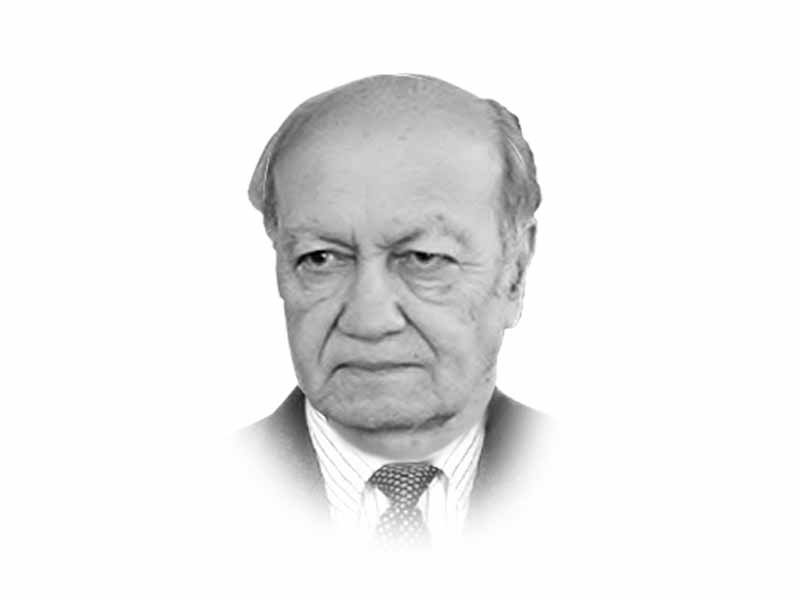
Recently there was a news item that Pakistan had to return the $1 billion loan to Saudi Arabia a few months ahead of the repayment schedule by borrowing from China.
This gave rise to speculation that all is not well in our relations with Saudi Arabia. Apparently, the cold response to Pakistan’s request of convening the meeting of the Council of Foreign Ministers to discuss the Indian annexation of Kashmir and Foreign Minister Qureshi’s controversial remarks about Saudi Arabia have further reinforced this perception.
It is becoming increasingly obvious that we need to grasp the underlying reality that Saudi Arabia’s national and global interests are vast and not necessarily always in convergence with Pakistan’s. To take one indicator, Saudi Arabia is India’s fourth largest trading partner and a major source of energy. The total volume of trade between India and Saudi Arabia in 2019 was $33 billion. In comparison, Pakistan’s was nearly $3 billion — ten times less than theirs. Similarly, Indians constitute the major workforce and are placed in important segments of the Saudi economy including banking, digital infrastructure and the oil industry to name a few.
In certain critical areas of Saudi foreign policy, Pakistan too has taken an independent position by not sending its troops to support Saudi Arabia’s conflict in Yemen. Pakistan has to also balance its relations with Iran, even if the tilt remains toward Saudi Arabia.
The Iran-Arab divide is so sharp that Saudi Arabia, the UAE and several Middle Eastern countries including Egypt are now openly fraternising with Israel and closing their eyes to the latter’s creeping annexation of the West Bank. India too under pressure from Washington, and to side with the Arab countries, has canceled or put in abeyance its trade and commercial deals with Iran. These examples reinforce that national interests dictate government policies.
Moreover, differences even among the closest allies are common and are a natural phenomenon as long as they do not affect the core interests of either party. A classic example is how Europe and the United States, or Japan and the US, differ on certain foreign policy issues yet hold on to each other on matters of common interests.
The extent that countries exercise autonomy in foreign policy is related to their economic strength and political cohesion. Pakistan would earn a lot more regional and international clout when it sheds its heavy dependence syndrome on other countries and international monetary organizations.
Indeed, Pakistan is blessed with a unique strategic location but we have overplayed its significance for short-term economic and political gains that have invariably recoiled back on the country. The consequences of the Afghan Jihad, the effects of Pakistan being used by the US as a launching pad to invade Afghanistan after 9/11, were ventures that continue to have their adverse fallout. There was of course a quid pro quo in being a part of these undertakings but mostly it served the interest of military rulers rather than that of the country. They were raised from a pariah status to allies at the expense of spreading the influence of militant organisations and Pakistan’s democratic evolution.
Pakistan’s national interest demands that we seriously reduce our heavy dependence on foreign countries and aid agencies and develop a viable self-sustaining economy. This is not to acknowledge that the present and previous governments did not have an operational policy with benchmarks to achieve this objective in a particular time frame. The implementation has been lacking due to a combination of several factors. Weak governance, lack of commitment, corruption, external and internal threats or a combination of these factors led to Pakistan failing to balance its budget and rely heavily on foreign assistance. Even now, the security situation demands Pakistan’s military and paramilitary forces remain on a high alert defending both the eastern and western borders.
Despite these compulsions we have to recognise the paradoxes that we face. We are proud to be a nuclear-armed country, and justifiably so, but on the other hand we are so dependent on others to keep our economy afloat. This is a huge contradiction for it imposes constraints on the country’s foreign policy options, distorts defence planning and affects international image.
More importantly, a continuing underperforming economy is not only harmful for the present generation but future generations as well. For this all major political parties and state institutions have a responsibility to work in unison so that the country achieves strong growth. There have been verbal assurances by PML-N president Shehbaz Sharif in parliament that opposition would cooperate in formulating a long-term economic policy, but it needs to be given a practical shape. Failure to achieve this would have a cascading effect on the coming generations. Equally important is to grasp the reality that the country’s economic future is closely linked with its democratic consolidation and political stability. Our leaders have either deliberately overlooked this reality or are unaware of its consequences.
I may add that improving the economy would require seriously addressing the energy conundrum that has eluded successive governments including the present one.
The Covid-19 pandemic has further strained the economy and would require additional effort and sacrifices to place it on the right course.
India has tried to exploit our economic weakness and pursues policies to further weaken it. Modi government’s deliberate strategy is to maintain diplomatic and military pressure on Pakistan by keeping the LoC active and instigate sabotage activities. In pursuing this course of action, it also tries to divert world attention from its gross human rights violations in Kashmir.
Meanwhile the recent border skirmish between India and China in Ladakh and India’s claim of Aksai Chin has increased tensions with China, and given an additional reason for Beijing to support Pakistan on opposing India on Kashmir. With Pakistan and China’s policy convergence on Kashmir it would give fillip to the Kashmiri freedom struggle and strengthen Pakistan’s position on the question of Kashmir.
To all our political, economic and foreign policy challenges there are solutions that require leadership and national resolve. Let us start in earnest to apply them.
Published in The Express Tribune, August 12th, 2020.
Like Opinion & Editorial on Facebook, follow @ETOpEd on Twitter to receive all updates on all our daily pieces.












COMMENTS
Comments are moderated and generally will be posted if they are on-topic and not abusive.
For more information, please see our Comments FAQ